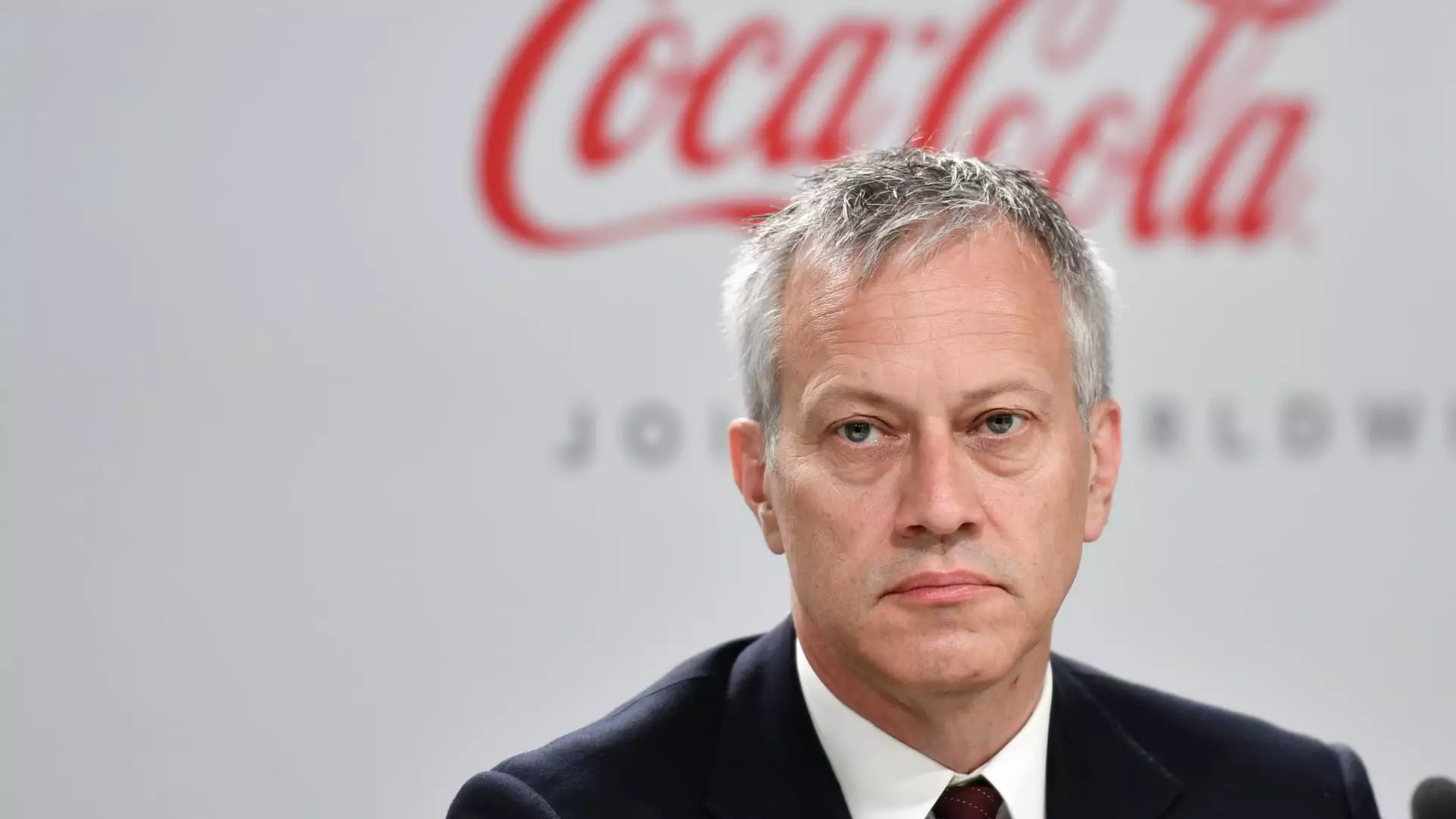When the unexpected occurs in the fast-food industry, it sends ripples throughout its network of partnerships. A notable example recently unfolded as Coca-Cola’s CEO, James Quincey, addressed concerns regarding an E. coli outbreak associated with McDonald’s Quarter Pounder burgers. Despite the gravity of the situation, Quincey expressed confidence that this incident would not significantly impact Coca-Cola’s sales. This assurance highlights the intertwined fates of two corporate giants nestled in nearly seven decades of collaboration.
The Symbiotic Relationship between Coca-Cola and McDonald’s
Coca-Cola boasts of a long-standing partnership with McDonald’s, with the latter being its primary customer in the restaurant sector. Their relationship is not just financial; it’s a critical component of their brand identities. This collaboration has led to lucrative marketing strategies, such as contributing funds to promote value meals to franchisees. This interdependence reflects a strategic alliance designed to weather economic fluctuations. Quincey’s comments were not merely reactive to the outbreak but indicative of a broader view of resilience and adaptability in facing challenges that affect both brands.
The gravity of the CDC’s announcement confirming the E. coli outbreak in ten states must not be underestimated. The report of 49 cases, including a fatality, underscores the serious implications for McDonald’s and its suppliers. The CDC has flagged fresh beef patties and sliced onions as potential culprits, and McDonald’s response to remove these items from restaurants in affected areas demonstrates corporate responsibility. However, while McDonald’s issues product recalls and takes appropriate measures, Coca-Cola remains poised as an ally, ready to support its partner through crisis management.
Market Dynamics: Consumer Behavior Amid Crisis
Despite the proactive measures taken by McDonald’s, the potential ramifications of such outbreaks on consumer behavior warrant attention. This recent incident arrives at a time when consumers are already tightening their budgets; hence, it’s particularly concerning for both McDonald’s and Coca-Cola. The two companies had been implementing attractive discounts and value propositions to lure back customers. While it is premature to speculate on the extent of sales losses McDonald’s might incur, the broader economic context—where consumers are becoming increasingly selective about dining out—paints a challenging picture.
Coca-Cola’s Financial Performance Amidst Adversity
Interestingly, despite the economic challenges and the hysteria surrounding the E. coli scare, Coca-Cola’s third-quarter earnings surpassed analysts’ expectations. This unexpected success showcases the company’s ability to leverage higher prices to maintain profit margins, even when overall consumer spending across the restaurant sector is declining. However, the slight dip in Coca-Cola’s stock (over 2%) on the day of the CEO’s comments highlights the volatile nature of investor sentiment in response to health crises linked to significant business customers.
Looking forward, the immediate future for McDonald’s and Coca-Cola hinges on effective communication and swift action. As McDonald’s re-evaluates its food safety protocols and crisis management strategies, Coca-Cola’s assistance can bolster both entities’ reputations. The recommendations from health authorities and a transparent approach to rectifying the situation will be essential.
Furthermore, this incident will likely serve as a case study for food safety within the fast-food industry, prompting a reassessment of supply chains and ingredient sourcing practices across various sectors. For Coca-Cola, continuing to diversify its partnerships beyond traditional frameworks and addressing consumer concerns proactively will be vital for future resilience.
While the E. coli outbreak linked to McDonald’s poses undeniable challenges, the history of resilience between Coca-Cola and McDonald’s suggests a path forward grounded in mutual support. As they navigate these turbulent waters together, both corporations stand to emerge stronger, adapting and solidifying their commitment to quality and consumer trust. The power of partnership will be tested, but history has shown that with shared goals and collaborative efforts, formidable challenges can often lead to significant opportunities.

Leave a Reply